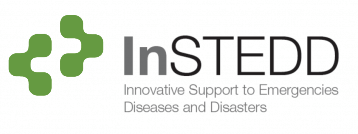Silicon Valley has inspired a series of hackathons across Asia to build a front-line defense against disease outbreaks in remote and under resourced areas of the region. Called EpiHack, the events seek to find ways to collect, track, and share data on emerging disease pandemics.
To date, three EpiHacks have taken place. The first two were in Phnom Penh (Cambodia) and Chiang Mai (Thailand), and last month there was one in Vientiane, the capital of Laos. The events – which typically last for three or four days – have provided an environment for developing an exciting new pedagogy and process towards building pandemic defense, something that’s often planned from ‘up high’ but which meets with extreme challenges when implemented on the ground in challenging and low bandwidth environments.
Unpacking the EpiHack approach at the recent Laos event reveals how the process creates actionable solutions and network building that’s useful in these emergency situations. Here’s what happened.
